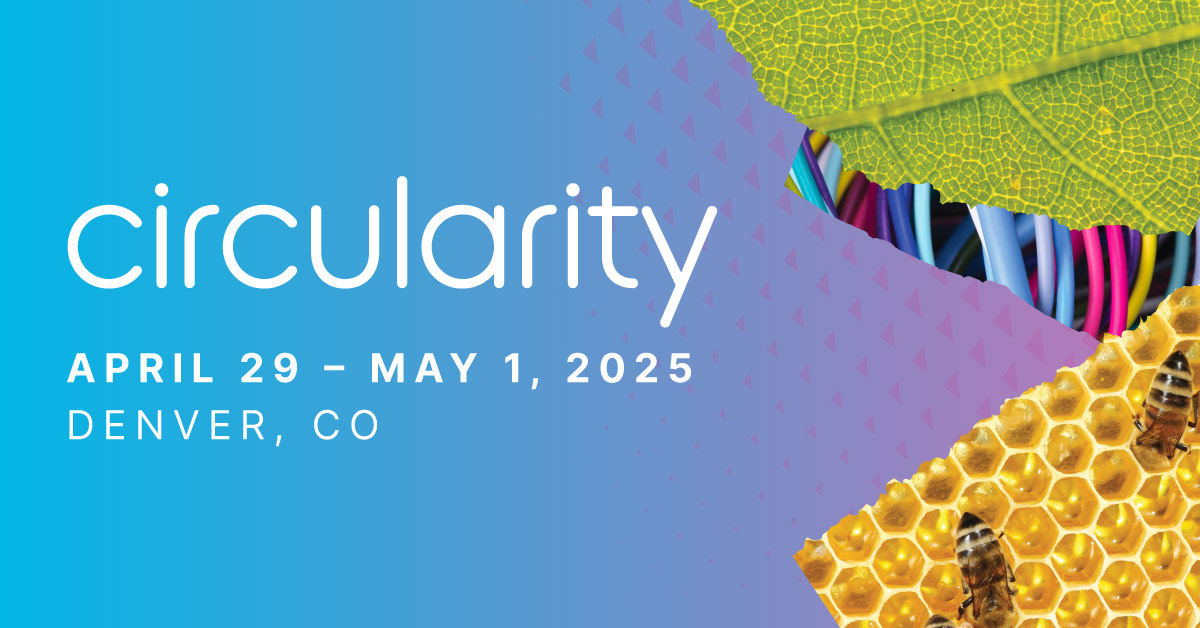White House order flexes muscle against plastic pollution
The Biden administration move will end federal purchases of disposable plastic products. Read More

The Biden administration’s July 19 executive order phasing out single-use plastics marks the beginning of the end for single-use plastics, circular-economy advocates hope.
The White House made the move to “reinforce its leadership” ahead of November talks in South Korea by 175 countries to reach a global treaty on plastics.
The new federal order phases out all disposable plastics in procurement by 2035. It also calls for state, local and regional authorities to attack plastics in five target areas: reduce pollution from manufacturing; innovate in materials and design; reduce waste generation; boost environmentally sound waste management; and remove pollution.
“With its multitude of environmental impacts across its supply chain, broad global effects, and severe public health consequences, plastic pollution has become one of the most pressing and consequential environmental problems in the U.S. and around the globe,” noted the authors of the 83-page report, “Mobilizing Federal Action on Plastic Pollution.”
“The White House action is a strong step toward a future in which single-use plastics are obsolete,” Michael Sadowski, executive director of the Circulate Initiative, told GreenBiz via email. The New York-based global nonprofit seeks to prevent plastic pollution and advance a circular economy for plastics.
Toward the end of throwaway consumption
The order has generated excitement among companies that offer alternative products and solutions to the ubiquitous plastic bags, cups and straws that have increasingly dominated American consumption habits for more than half a century.
Under the order, single-use plastics in government food service, events and packaging will end by 2027 in favor of reusable, compostable and “highly recyclable products,” followed by all federal operations by 2035. Eliminating throwaway plastics supports a Biden administration goal of net-zero procurement by 2050.
Food service offers more readily available replacements for single-use plastics than other areas, such as health care.
“But, replacements for all applications will come faster if we get commitments like this one from the U.S. government, as well as domestic and international policies that set a clear regulatory landscape for companies,” Sadowski said.
“As the single largest consumer in the world, the U.S. federal government has an outsized role to play in curbing the use of problematic and unnecessary plastic products,” said Erin Simon, VP and head of plastic waste and business at World Wildlife Fund, in a statement. The order sends “a message to the public and private sector across the world: if we can make change happen at scale, so can you.”
Startup backers see opportunities
Ideally, the government will prioritize reuse systems “rather than investing in recycling and alternative disposables, which will not fully address the interlinked climate and waste crises,” Upstream CEO Crystal Dreisbach wrote GreenBiz.
The nonprofit, based in Orlando, Florida, and Ventura, California, belongs to the growing ecosystem of investors, think tanks and startups working to end the once-through economy for plastics.
“It’s a step in the right direction, however, it all comes down to how well this is executed,” said Alison Cove, founder and CEO of Usefull, which offers resuable stainless steel meal containers for campuses. “I’d specifically like to see a focus on plastic-free reusables.”
Industry responds
“The administration’s investment in infrastructure to improve reuse, recycling, and composting aligns with and supports the U.S. Pact’s efforts,” Jonathan Quinn, CEO of the U.S. Plastics Pact, told GreenBiz. He also praised the order for emphasizing the role of “high-quality recyclable plastic packaging, paired with design specifications and the demand for post-consumer material.”
Most of the hundreds of corporations that set ambitious goals through the U.S. Plastics Pact to dramatically reduce single-use plastics by 2025 have fallen behind, according to As You Sow.
Environmental watchdogs have called out brands including Coca-Cola, Pepsico, Mars and Nestle, for their disproportionate contribution to plastic pollution.
The fossil-fuel dependent plastics and chemicals industries expressed disappointment in the order’s single-use plastics ban.
“Instead of implementing arbitrary bans that don’t address our environmental challenges, we need to collaborate on sound policies that will truly help us achieve circularity,” said Matt Seaholm, president and CEO of the Plastics Industry Association, in a press release. The group represents the $548 billion industry of plastics producers, suppliers, recyclers and processors.
However, he praised the Biden administration’s call to improve recycling infrastructure and called for “well-crafted” extended responsibility policies, which hold companies responsible for managing the plastic waste they generate. The association also called for investing in advanced, or chemical, recycling.
“We agree with the White House’s ambitions to make plastic production a more circular process,” stated Ross Eisenberg, president of the American Chemistry Council’s America’s Plastic Makers division.
Watchdogs see gaps
Some environmental groups criticized the White House for taking zero action to tamp down plastic production, which has risen exponentially in recent decades with no signs of slowing, according to Fenceline Watch, an environmental justice organization in Houston.
“Our government, along with the chemical industry, has crafted a plan that calls for more,” said the group’s policy director, Shiv Srivastava. “More plastic, more chemicals, more toxic exposure, more health issues, recalls, false solutions, more human rights violations, and ultimately more money.”












